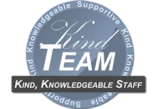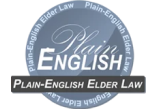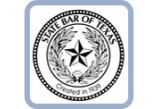Call for your free strategy session – (713) 970-1300
Understanding elder law, estate planning, and long-term care can be challenging. You don’t have to go it alone. At Holland Elder Law, we’re here to provide the expert guidance you deserve. Our decades of experience allow us to create tailored plans that protect what’s yours, support a respectful aging process, and give you peace of mind. Let us help you safeguard your legacy and face the challenges of aging with confidence.

In-depth knowledge with expert, empatheic guidance that protects the unique legal challenges faced by older adults.

Proven results that get seniors eligible for Medicaid nursing home benefits with less stress, worry or errors.

Tailored Wills, Trusts, Power of Attorney and strategies that align with your goals, family dynamics and financial situation.
Years of Experience
Families Helped
Protected Assets
01
You call for your free strategy session.
02
We listen to understand your specific challenges and concerns.
03
You find out the available solutions and the price.
04
We help you craft and implement your plan.
05
You find peace of mind.
Holland Elder Law is here to help & guide you
Yes, it is. You have a legal right to protect the maximum amount of income and assets. Medicaid laws were passed to ensure access to long-term care for those who need it most while protecting seniors from expensive nursing home costs. Just as you can legally take steps to reduce the amount of income tax you pay every year; you can legally plan your assets and income to reduce your exposure to nursing home payments. My law firm was created to guide families to do just that
Unfortunately, no. A revocable living trust does offer several asset management advantages. But, because it can be revoked, the assets are easy to get to. it provides no protection from Medicaid’s spend-down rules. In some Medicaid planning cases, a revocable living trust makes it harder to protect your savings. My firm can help you overcome any problems with your living trust.
Spending down is the process of reducing your assets to the qualification limits established for Medicaid benefits. The Medicaid rules seem to imply that all amounts over the asset limits must be spent for the care of the person entering the nursing home. However, that’s not the case. Buried beneath Medicaid’s complex rules are strategies that significantly shrink the spend-down amount.
Medicaid characterizes resources as either “exempt” or “countable.” Assets that Medicaid considers exempt are ignored when determining eligibility. These include a personal residence, one vehicle, prearranged funerals, burial plots, and personal items such as household goods, furniture, and clothing. All other assets you and your spouse own are subject to the spend-down rules. The key to protecting your life savings usually involves converting “countable” assets to “exempt” resources, but the approach requires careful planning, timing, and implementation.
When deciding eligibility, Medicaid only considers the income of the person applying for benefits. Income means wages and salary, government benefits such as Social Security, Railroad Retirement Benefits, Veterans benefits, Supplemental Security Income (SSI), IRA and pension income, income from investments and savings, rental income, private annuity payments plus unemployment benefits and worker’s compensation.
The income limit changes every year. For 2025 the limit is $2,901. Remember this is the gross amount before any deductions, not necessarily the amount deposited sent to you, which may have been reduced by income taxes, health or life insurance premiums, or miscellaneous items such as charitable donations and union dues.
Texas is known as an “income cap” state. In 2025, if your gross income exceeds $2,901, a Miller Trust (also called a Qualified Income Trust) is necessary to qualify for benefits. Only income is allowed to be placed in the trust. It is not designed to protect assets. It is only used when the applicant has “too much income.” Medicaid rules lay down specific guidelines on how funds must be placed in and spent from a Miller Trust. Violating the rules can delay benefits.




